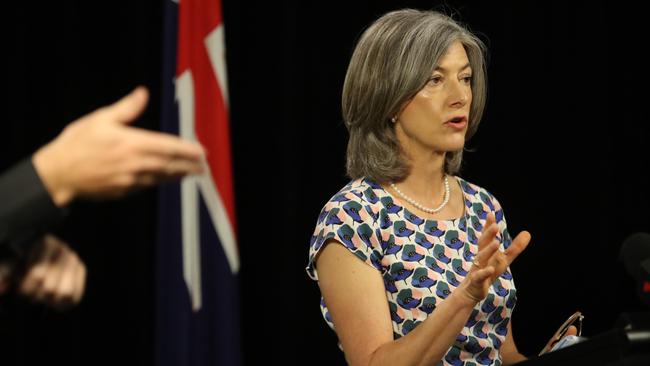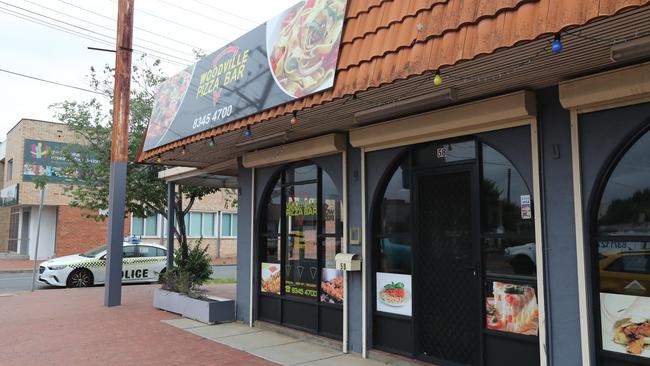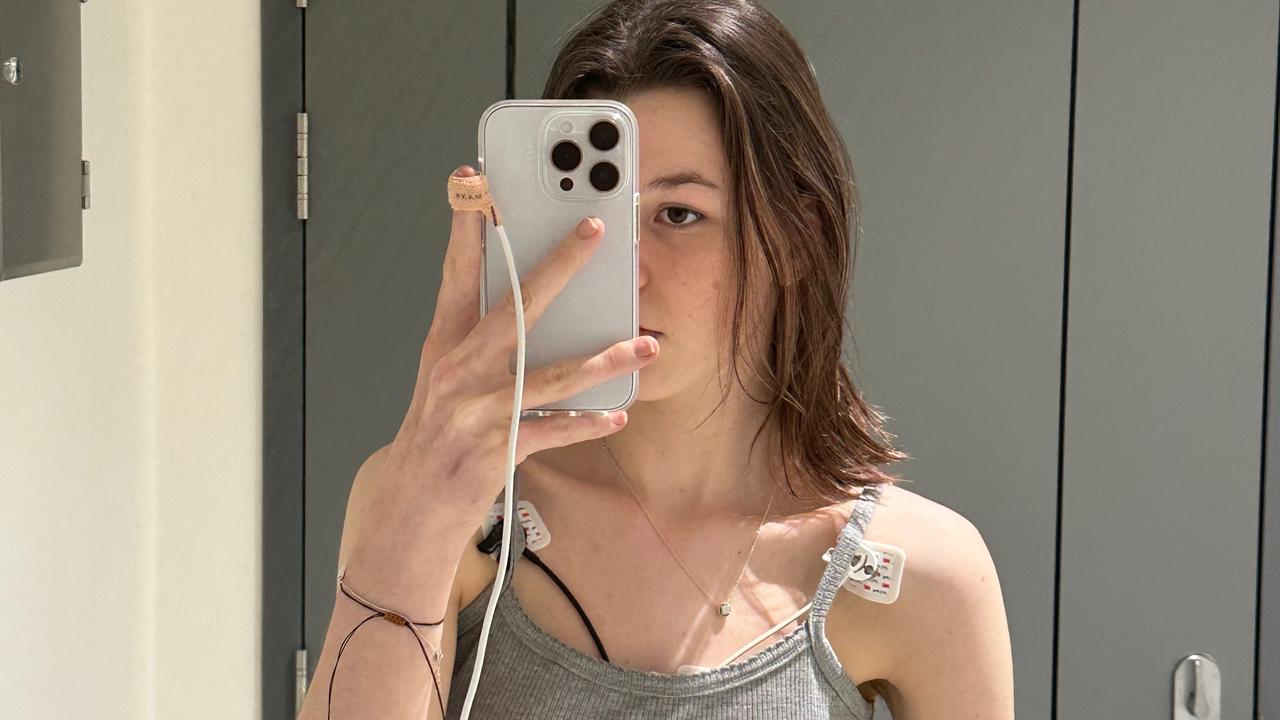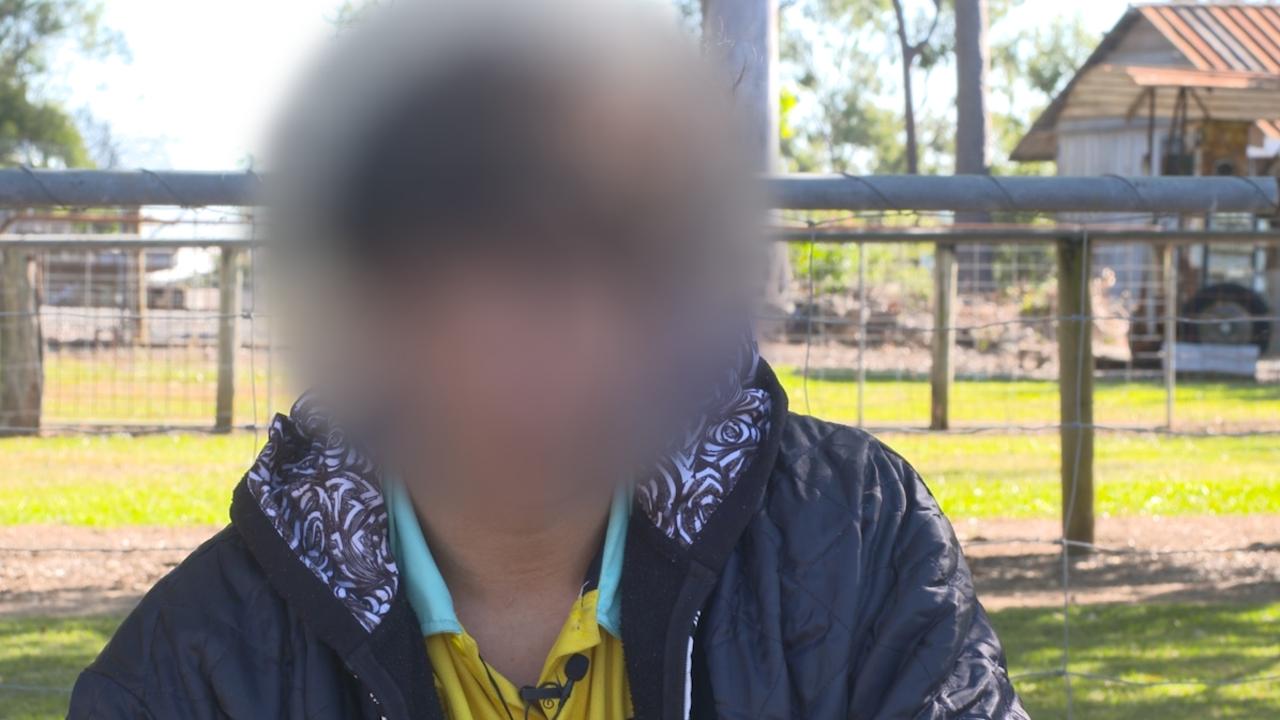Prof Spurrier says interview with Woodville Pizza Bar worker came under patient confidentiality
SA’s top health official has defended a decision to not pass to police investigators the interview that sparked the SA lockdown.
Coronavirus
Don't miss out on the headlines from Coronavirus. Followed categories will be added to My News.
SA’s top public health official has defended not passing to police an interview between a pizza bar worker and SA Health contact tracers that authorities said wrongly sparked the statewide lockdown.
Contact tracers declined to pass over the initial interview with the worker to police investigators citing patient privilege.
The Spanish national, in his 30s, allegedly said he had visited the pizza bar for a takeaway pizza but later said he worked there.
SA chief public health officer Professor Nicola Spurrier said the initial interview was treated under patient-doctor confidentiality.
“When you share confidential information with your doctor, you’re not expecting that to be given out – that’s something really enshrined in the ethics of the practise of public health,” Prof Spurrier said.

“If there is a situation where we need to divulge the information for the greater good, because there’s going to be significant impact on public health, then we would do so.
“In this situation, it was our strong belief it wasn’t necessary.
“When our contact tracers are getting that information from you, it will be treated with that same degree of confidentially.”
Neither the Premier nor health Minister approached her, Prof Spurrier said, requesting the interview be given to police.
“That’s not something that would be possible with our legal instruments in South Australia.”
Health Minister Stephen Wade said was he was disappointed the pizza bar worker would not face charges.
“I am disappointed that a person who impaired the public health response to the cluster will not face criminal charges but it’s really important to keep it in perspective,” Mr Wade said.
“SA Health has been interviewing thousands of people, particularly in relation to contact tracing and there’s been overwhelming co-operation and that’s been vital … to closing down this cluster.”
Mr Wade said contact tracers were under “legal policy and professional duties” to maintain the confidentiality of their interviewees.
“The clear advice to me from SA Health is there is nothing that I or the government could do to see that information provided,” he said.
He did not rule out changing the law but said any change had to incorporate “professional duties”.
“The government, through the parliament, has the capacity to change the legal framework, but that doesn’t necessarily deal with other duties, such as professional duties.
“The laws can be changed – any legal change needs to be considered in all of the relevant duties, legal, professional, and policy, that’s for the government to be doing.
Prof Spurrier said any legal change to patient confidentiality, held under the Public Health Act, wasn’t “something we need to be debating”.
Asked if SAPOL informed SA Health before it launched a taskforce to investigate the allegations, Police Commissioner Grant Stevens said police were in “daily contact” with health
and he “didn’t think it would be the case” that SA Health would have immediately told police they would be unlikely to pass over the interview.
The man’s lawyer on Thursday said he was neither able to confirm nor deny his client lied.
Scott Jelbert said he was not prepared to say one way or the other if his client had told the lie that led to the lockdown until he could map out a future path for returning the man’s life to normality.
Mr Jelbert could also not comment on the reasons for what the man told SA Health contact tracers, nor, until an investigation was complete, say if it was appropriate for the state government to pinpoint the man as the cause of the state’s lockdown.
“He is not the monster they portray him to be,” Mr Jelbert said.
“He hasn’t caused $100 million worth of damage to the state, he hasn’t thrown people into a week of lockdown.”
Mr Jelbert added the 36-year-old Spanish national was deep in hiding and feared leaving his house over concern for his safety and public persecution. He is considering legal action against the state government.

The man was worried being embroiled at the heart of such public fury had compromised his prospects of a future visa application, and affected his everyday livelihood.
“He’s in hiding, that’s not going to change anytime soon,” Mr Jelbert said.
It would take careful planning to change the minds of a public convinced the man caused the statewide lockdown, Mr Jelbert said.
The man, who lives in Adelaide with his wife, has applied for an extension of his visa but is “frightened” the public’s response may hinder his chances of being approved.
“He appreciates the way he has been portrayed, and does not blame anyone for their opinion of him. He's hopeful the general public will give him the opportunity to put forward his say and opinion and approach to all this,” Mr Jelbert said.
“His focus is to feel the confidence to step out of his home, to meet people and to not be brandished as ‘that’ guy.
“He is a real person, he does have emotions, this is frightening for him.”
Mr Jelbert said the man expected dealing with the government to be confrontational, and was considering defamation action.
Any decision to proceed with legal action depended on the state government’s response to the police decision to not lay charges.
Previously, the government said the man contracted COVID-19 while working at Woodville Pizza Bar from a colleague who also worked security at a medi-hotel.
It has further asserted the man told SA Health contact tracers he had ordered a pizza from the bar – sparking fears the virus could be contracted from pizza boxes.
The next step, according to Mr Jelbert, is to revisit all comments made by the government relating to the man, to identify the reasons the state was put into lockdown, and to then formulate lines of inquiry into identify “deficiencies” in explanations.
Mr Jelbert said his firm has received an “overwhelming majority” of positive support from the public believing the reasons for the lockdown did not add up, and for those who believe the lie but also think the man is not being treated fairly.
On Wednesday, SA Police Assistant Commissioner Peter Harvey said the man would not be charged due to a lack of evidence.
“The facts of the conversation cannot be presented to a court,” Mr Harvey said.
“SA Health exercised their obligation to claim privilege and not supply information to the investigation.”
He said allocating resources towards the investigation was an obligation, not a pre-emptive decision nor a case of overcompensation.
“I have absolute confidence the investigation was appropriate based on fact … we are not led by the emotion that was caught up in the whole event,” he said.


